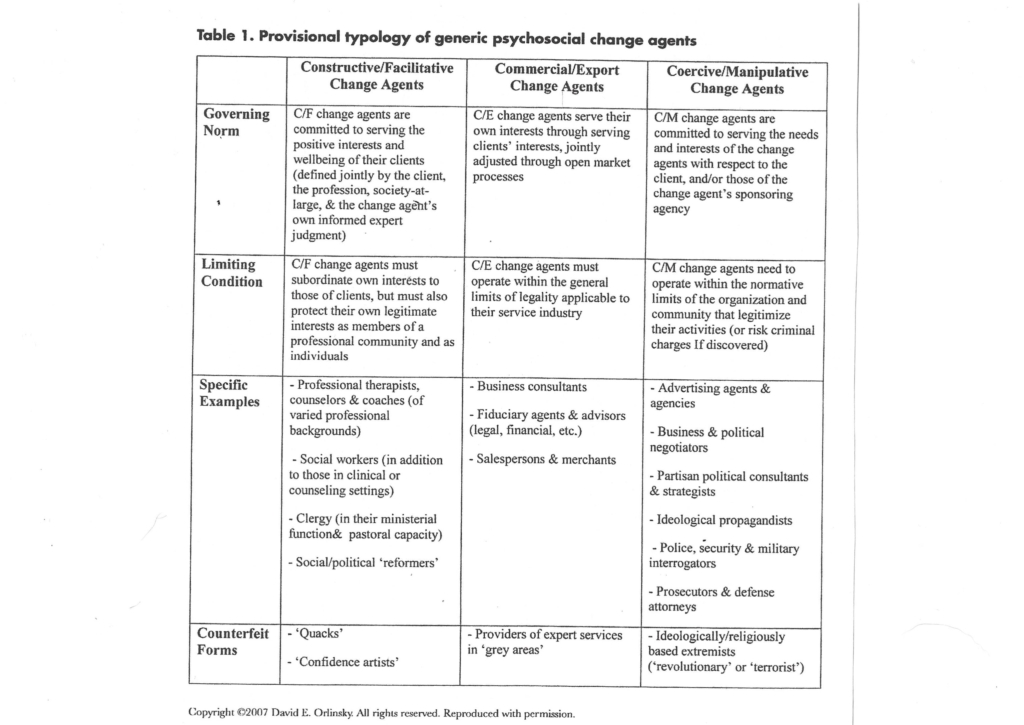
Neurosocial Dynamics: Toward a Unique and Cohesive Discipline for Organizational Coaching
Coaches are change agents who serve the interests of their clients. The definition of coaching by the International Coach Federation (2009) recognizes this focus on the client’s interests, or “agenda” by defining coaching as ” partnering with clients in a thought provoking and creative process that inspires them to maximize their personal and professional potential.” Many similar definitions exist across coaching and coach training organizations.
David Orlinsky brought his experience as a professor in the multidisciplinary Department of Human Development at the University of Chicago to bear on the question of where coaching fits among other practices that use psychological or social means to induce change. Orlinsky combined the various definitions of coaching with his knowledge of other helping professions. Table 1 presents the preliminary conclusions that Orlinsky (2007) drew.
Orlinsky describes each of the three broad categories of change agents in terms of its governing norm, limiting condition, and counterfeit forms. Like other constructive/facilitative change agents, coaches operate under the norm of a commitment “to serving the positive interests and well-being of their clients (defined jointly by the client, the profession, society-at-large, & the change-agent’s own informed expert judgment)” (Orlinsky, 2007, p. 3). Government certification and ethical codes are designed to protect clients from counterfeit agents in this category, such as quacks and confidence artists. The question of whether and how the public can be protected from untrained coaches has not yet been determined, other than by voluntary certification with professional associations such as the International Coach Federation, European Mentoring and Coaching Council, or the Worldwide Association of Business Coaches.
- Posted by Linda Page
- On January 4, 2022
- 0 Comment



Leave Reply